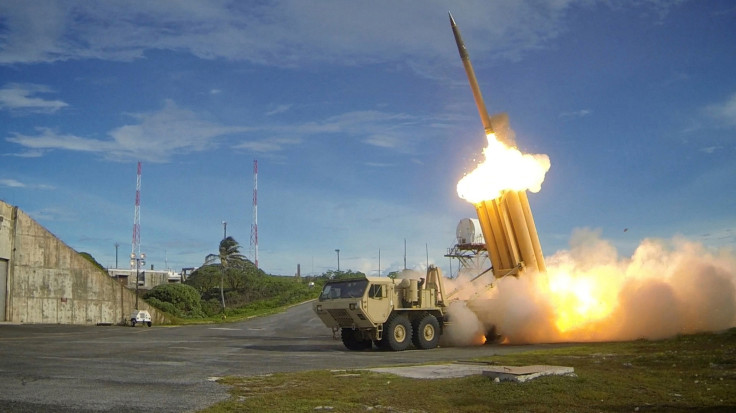South Korea says it will not share Thaad missile radar information with Japan
A South Korean official said it would not be effective to share information about an incoming missile at its terminal phase of flight.
South Korea has reportedly said it will not be providing Japan with any information it retrieves from the radar of a sophisticated US anti-missile defence system that is expected to be operational from late 2017. The comment has come amid tensions following the US and South Korea's announcement earlier this month regarding deploying the advanced Terminal High-Altitude Area Defense (Thaad) system in the Korean peninsula, which has drawn protests from China.
The anti-ballistic missile is seen as the South's response to North Korea's repeated nuclear weapons tests and missile launches. China and Russia have condemned the deployment over fears that the system's radar will be able to track its military capabilities and pose a threat to its own regional security and in Northeast Asia.
"Under the trilateral information-sharing agreement with the US and Japan, South Korea is obliged to share the information it gets on North Korea's nuclear and missile tests with Japan through the US. But the information detected by the Thaad radar won't be going to Tokyo," a government official familiar with the subject told local news agency Yonhap.
Another South Korean government official said it would not be effective to share information about an incoming missile at its terminal phase of flight.
Meanwhile, Chinese Foreign Minister Wang Yi criticised the deployment saying it hampered the mutual trust between Beijing and Seoul. According to Reuters, Wang shared his remarks with South Korean Foreign Minister Yun Byung-se when they met late on Sunday (24 July) on the sidelines of the Association of Southeast Asian Nations (Asean) conference in Vientiane, the capital of Laos.
Responding to Wang, Yun reportedly said the move was aimed at protecting South Korea's security and asserted that it would not damage China's security interests.
The US and the South have said their decision to deploy Thaad is a move only to be used in defence and to isolate North Korea in the peninsula. Kim Jong-un's government also launched a series of missile tests intended as simulated attacks against South Korean ports and US military using the airfields.
The drills were personally overseen by Kim and the missiles were thought to have flown 500-600km (300-360 miles) into the sea off the country's east coast on 19 July further escalating tensions between the North and the South. The South's military said the fired missiles could have hit any place in the country if North Korea intended.

© Copyright IBTimes 2025. All rights reserved.





















